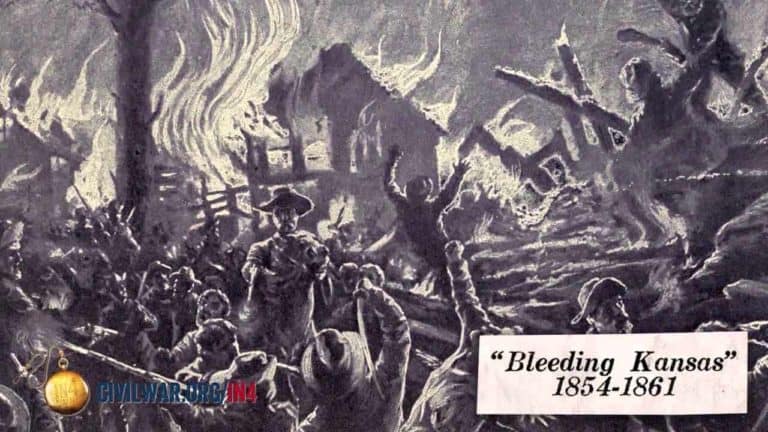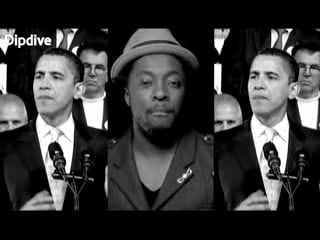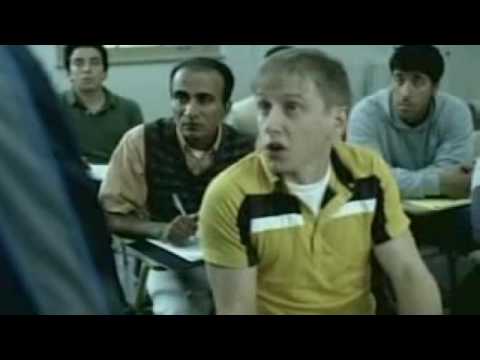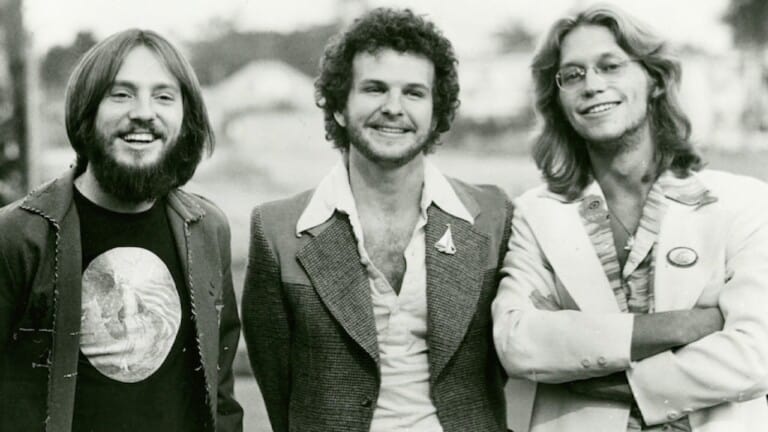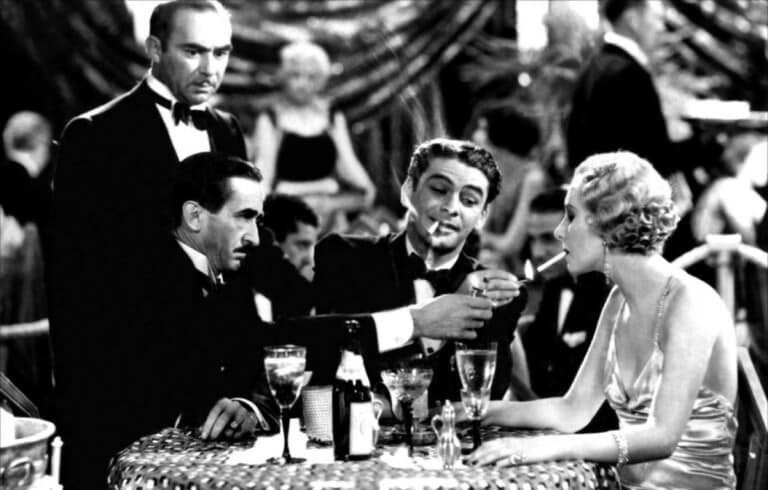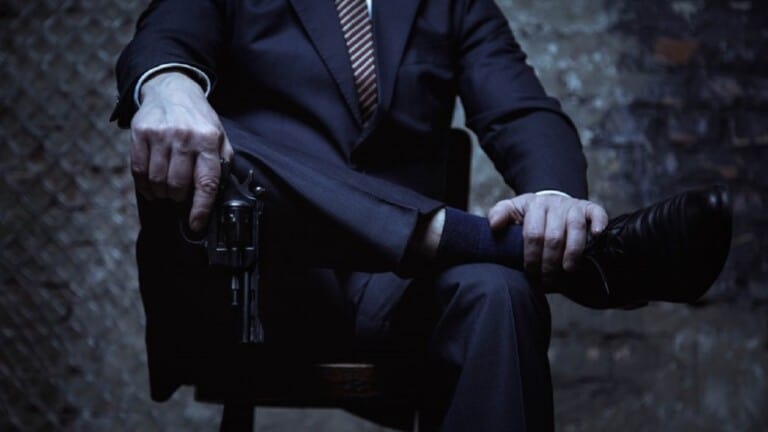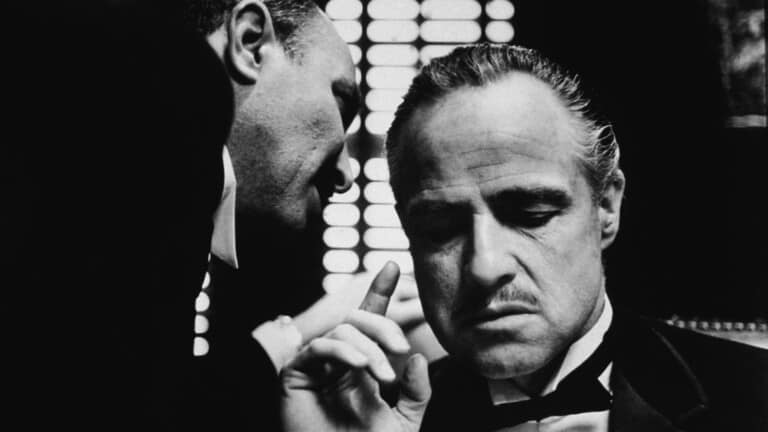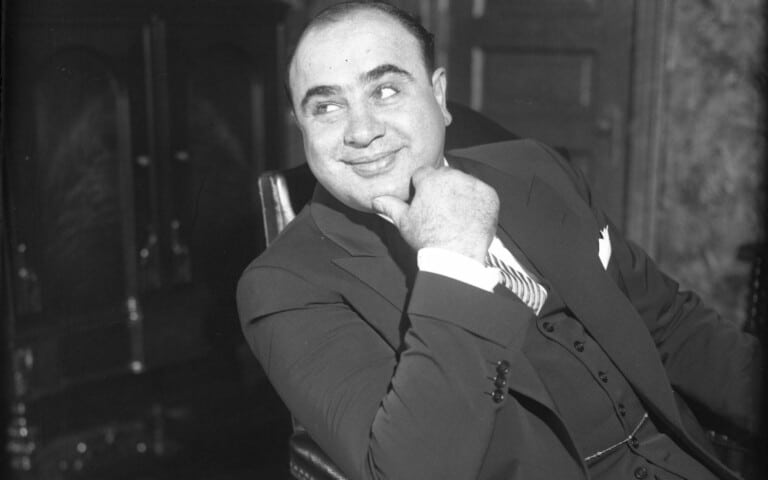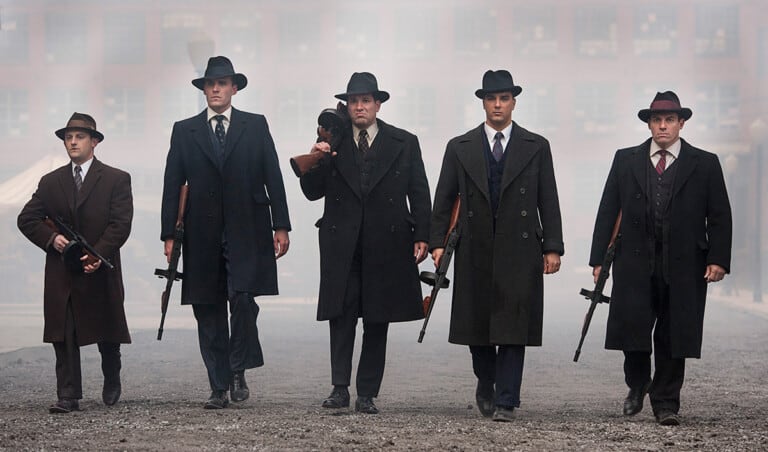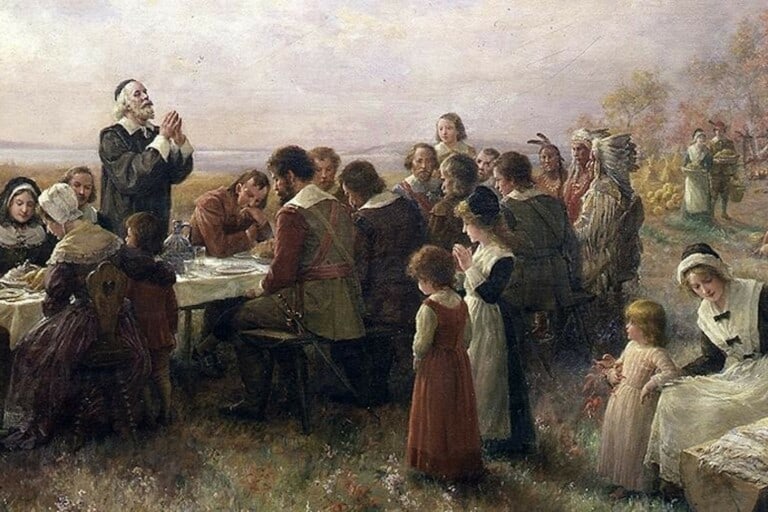Voici une petite rétrospective en images de la guerre de sécession américaine (1861-1865) : une seconde représente une semaine, ce qui permet de dévoiler l’ensemble du conflit opposant le Nord au Sud de manière continue, montrant les avancées des deux camps de manière très explicite, à la manière d’une marée militaire, avec des explosions pour symboliser les batailles majeures.
Tous les articles sur la thématique "America"
Will.I.Am – Yes We Can (Obama song)
Pas de politique ici mais par contre je trouve cette chanson, Yes We Can par Will.I.Am, plutôt pas mal :
It was a creed written into the founding documents
that declared the destiny of a nation.
Yes we can.
It was whispered by slaves and abolitionists as they
blazed a trail toward freedom.
Yes we can. Yes we can.
It was sung by immigrants as they struck out from distant shores
And pioneers who pushed westward against an unforgiving wilderness.
Yes we can. Yes we can.
It was the call of workers who organized;
Women who reached for the ballots;
A President who chose the moon as our new frontier;
And a King who took us to the mountain-top and pointed
the way to the Promised Land.
Yes we can to justice and equality.
(yes we can, yes we can, yes we can, yes we can…)
Yes we can to opportunity and prosperity.
Yes we can to opportunity and prosperity.
Yes we can heal this nation.
Yes we can repair this world.
Yes we can. Si Se Puede
(yes we can, yes we can, yes we can, yes we can…)
We know the battle ahead will be long,
But always remember that no matter what obstacles stand in our way,
Nothing can stand in the way of the power of millions
of voices calling for change.
We want change!
(We want change! We want change! We want change…)
We have been told we cannot do this by a chorus of
cynics who will only grow louder and more dissonant.
We’ve been asked to pause for a reality check.
We’ve been warned against offering the people of this nation false hope.
But in the unlikely story that is America,
there has never been anything false about hope. We want change!
(We want change! I want change! We want change! I want change…)
The hopes of the little girl who goes to a crumbling
school in Dillon are the same as the dreams of the
boy who learns on the streets of LA;
We will remember that there is something happening in America;
That we are not as divided as our politics suggests;
That we are one people;
We are one nation;
And together, we will begin the next great chapter
in America’s story with three words that will ring from coast to coast;
From sea to shining sea – Yes. We. Can.
(yes we can, yes we can, yes we can,
yes we can, yes we can, yes we can, yes we can, yes we can…)
Jeu : identifiez toutes celles et ceux qui apparaissent dans la vidéo :)
Desperate Housewives saison 4
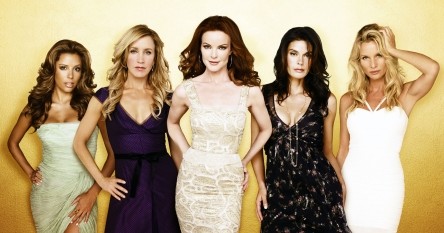
Susan Mayer (Teri Hatcher), Lynette Scavo (Felicity Huffman), Bree Van De Kamp (Marcia Cross), Gabrielle Solis (Eva Longoria) et Edie Britt (Nicollette Sheridan) remettent donc le couvert et nous invitent pour de nouvelles intrigues dans leur petit quartier tranquille (mais souvent agité !) de Wisteria Lane.
Dexter saison 2
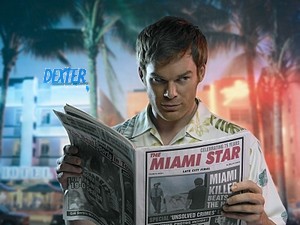
Dexter Morgan, spécialiste dans l’analyse de prélèvements sanguins, nous revient pour une deuxième saison !
La première saison, un très bon cru, a placé la barre très haut et les scénaristes nous avaient offert un superbe personnage tout en nuances.
Keith Carradine rejoint le casting de cette seconde saison et tiendra le rôle d’un agent du FBI enquêtant sur une série de meurtres, tout comme Jaime Murray qui jouera le rôle de Lila, une ancienne droguée devenue artiste et qui se lie d’amitié avec Dexter.
Contrastes, contradictions, contrôle des sentiments et des émotions, deception, enquêtes… la saison 2 commence cinq semaines après la fin de la saison 1.
America
America
America is a rock band that was formed in London in 1970 by Dewey Bunnell, Dan Peek, and Gerry Beckley. The trio met as sons of US Air Force personnel stationed in London, where they began performing live.
Achieving significant popularity in the 1970s, the trio was famous for its close vocal harmonies and light acoustic folk-rock sound. The band released a string of hit albums and singles, many of which found airplay on pop/soft rock stations.
The band came together shortly after the members’ graduation from high school in the late 1960s. In 1970 Peek joined the band, and a record deal with Warner Bros followed. In 1972 America released their debut album, America. The album included the transatlantic hits “A Horse with No Name” and “I Need You”. Their follow-up album, Homecoming (1972) included the single “Ventura Highway”.
Over the next several years the band continued to release hit songs, including “Muskrat Love” on Hat Trick (1973), “Tin Man” and “Lonely People” on Holiday (1974), and “Sister Golden Hair” and “Daisy Jane” on their 1975 record Hearts. In 1975 America released History: America’s Greatest Hits, a compilation of hit singles, which was certified multiplatinum in the United States and Australia.
Peek left the group in 1977 and their commercial fortunes declined, though they returned to the top 10 in 1982 with the single “You Can Do Magic”.
The band’s final Top 40 hit was “The Border”, which reached no. 33 on the Billboard Hot 100 in 1983. The group continues to record material and tour regularly. Its 2007 album Here & Now was a collaboration with a new generation of musicians who have credited the band as an influence.
America won a Grammy Award for Best New Artist and were nominated for Best Pop Vocal Group at the 15th Annual Grammy Awards in 1973. The group was inducted into the Vocal Group Hall of Fame in 2006 and received a star on the Hollywood Walk of Fame in 2012.
America guitar tabs
Organized Crime: Repression and Censorship
Organization of the Repression
With John Edgar Hoover, the FBI had certain successes in its fight against Organized Crime. The FBI was/is a federal agency that could/can work across the territory. Police forces were sometimes ill-trained because they faced very well organized murderers.
1933 saw the creation of the Bureau of Investigation (Justice), the Prohibition Bureau (Department of the Treasury and eventually to the Department of Justice), and the Bureau of Identification.
The FBI emphasized figures to receive more subventions and for the training of policemen, the FBI became a kind of police academy.
The codes of appearances tell the fall or rise of the gangster. It is sometimes wrong: they can die very well-dressed. Banquets are social rituals, as well as funerals.
In Little Caesar, once they killed someone they would attend his funerals very well dressed. Repression is a spectacle in a way: FBI and politics of prestige.
President Hoover used the media a lot: he collaborated with the media and the movie industry to create a positive image of the war on crime. The Kefauver hearings were televised for the first time. In a way, it was a show.
The cinema was the major medium to picture Organized Crime. Ten years later, TV would be a great threat to movies. Hearings were televised live: immediacy and power.
Organized Crime was in the streets and on the screens: dialectic between expression and repression. New forms of expression both in reality and in fiction.
When Hollywood involved censorship, it became an indirect form of expression but it was still depicting Organized Crime.
The image of America on screen is that of a country in which morality should impose images. Always new forms for gangsters on film even if censorship was present.
Evolution of Organized Crime
Evolution of Gangsterism
1929: Wall Street crash. Prohibition is an attempt to decrease the revenue of alcohol.
1933: election of Franklin Roosevelt, who sets up the New Deal.
1934: Repeal of the Prohibition. Roosevelt had realized the importance of the ethnic vote, and especially the Catholic vote.
Creation of the Work Progress Administration (W.P.A.): the state provides the jobs. The Organized Crime became less of a necessity.
The vision of the gangster also evolved in the movies: he is now presented as a thing of the past.
When R. Sullivan gets out of prison after the repeal of the Prohibition, he does not fit in anymore: he is out of touch. The idea is that once you have been into illegal activities you can take the money and go into legal activities (some Jewish businessmen are grandchildren of earlier Organized Crime gangsters).
Gangsterism is doomed to vanish but the gangsters have not disappeared, they are still killed by other gangsters.
To go legit: to go legitimate. Gangland reconversion: gangsters could change by investing illegal money into illegal businesses.
The Organized Crime went more and more into legal activities. The State creates its counterpower: the lottery, which is legal in certain states.
Las Vegas was created by the Mafia (Bugsy Siegel). He opened the first casino, the Stardust; which was controlled by the Mafia and connected between legal and illegal activities.
Siegel was also interested in Hollywood but there was no very known widespread involvement of Organized Crime in the movie industry, except for the Browne-Bioff episode.
The Browne-Bioff plan
The Browne-Bioff episode started in Chicago: Willy Bioff was a Chicago racketeer in partnership with George Browne, a local official for a trade union (I.A.T.S.E.: International Association of Theatrical and Stage Employees).
The association had a campaign of extortion from the theatre director to avoid strikes and loss of money.
This campaign extended nationwide and touched Hollywood (RKO and Fox gave money in exchange for peace on the labour front). In 1941, all came to the surface.
Joseph M. Schenk, president of Fox, got arrested by the police and in exchange for a lighter sentence, he denounced the Browne-Bioff plan.
World War II
The structure of Organized Crime did not change except that it sometimes worked with the American government.
The Americans feared German submarines to attack the coast so Organized Crime ensured the waterfront workers’ liability to the government.
The Cold War
1951: the Kefauver Commission was set up to investigate crime and McCarthy was against the communists. Both are often associated. The Kefauver Commission was headed by Senator Kefauver (for Tennessee).
In 1950, he became chairman of the Senate Committee to Investigate Organized Crime in Interstate Commerce. The committee studied:
- inter-state gambling and racketeering
- use of inter-state facilities for Organized Crime (railway…)
1967-1968: Omnibus Crime Bill, allowing for wire topping. Organized Crime is a reflection of American society. It places the Kefauver Commission in the Cold War atmosphere.
Organized Crime : Expression and Repression
There is a parallel between Organized Crime and the movie industry. Organized Crime was one of the ways for social climbing, of getting out of poverty and ethnic matters.
In the main Hollywood studios, many directors were ethnics: Samuel Goldwyn and Louis Mayer (M.G.M. studios: Metro Goldwyn Mayer), David O. Selznick, Charles Chaplin…
The cinema was a new technology founded by the elite, the ethnic entrepreneurs and the W.A.S.P. businessmen. Some innovative sections of business were opened for the same reason (legitimate, profitable). These people found a renovation of the American Dream either in Organized Crime or in cinema.
Producers did not push gangster films for the simple reason that it was not that popular at the time. They gave the public what they wanted (and the WASPs were rather conservative). It is only when it generalized that gangster movies “took off”.
Another connection: several actors became movie stars because of their ethnic origins: James Cagney was Irish. (Public Enemy), Paul Muni was (Scarface)…
They brought the ethnic accent to the screen. They would have never been movie stars in classic films. It is thanks to the gangster movies and to the parallel made with Organized Crime.
Organized Crime and the Prohibition
Introduction
You cannot rely on newspaper articles. Recently, it featured the confessions of repenting organized crime members, i.e. the distorted truth for their interests. The police distorted the figures to get credit and money from the Federal Government.
Organized crime was considered a kind of un-American activity. Since more gangsters were ethnic (Jews, Russians, etc), calling them “un-American” was a way of dismissing American roots.
In Scarface, the motto “the world is yours” highlights the ironic vision between the American Dream and the gangsters.
The structure of organized crime is that of a bureaucratic and corporate model. It looks like a company organic line, with a complex hierarchy and a division of labour.
Responsibilities are carried out in an impersonal manner and the function is more important than the person.
Organized crime is a mirror of monopoly capitalism and from earlier gangster movies, it is considered as a business.
In Asphalt Jungle, “crime is just a left-handed form of human endeavour”.
The difference between organized crime and any corporation is that you cannot use written support: it relies on secrecy and personal networks.
Organized Crime in America
Organized Crime in America (1929 – 1951)
1929: Wall Street crash, which forced gangsters to find a new way of making money in a time of recession. 1951: middle of the Cold War.
Kefauver hearings started the huge mystification of the Mafia, discovering that organized crime was still on in the U.S. First TV debates on organized crime.
In history, gangsters and Organized Crime did exist. Between history and culture, there are matters of ideology: in what way does that interact with what was seen on screen?
Presence of censorship and self-regulation for films. Sometimes people wanted to ban or censor gangster films: interactions between politics, culture and crime. Movies influenced the war against crime.
The history of Hollywood is that of people for and against those movies. Creation of compromises: “production code” (not censorship) to see what people disliked and to escape post-censorship.
But how censorship is possible in the US? (c.f. the first Americans and the liberty of expression). It was considered as a commercial venture. A way of skirting the censorship was to show 2 shots to see a person killed instead of one (the latter was prohibited).
Introduction to Puritanism and Expansionism
Puritanism
Puritanism is a radical version of Protestantism, which is rooted in the movement called the Reformation (16th century).
American Puritanism and English Puritanism are fairly different. American Puritanism became the ultimate, most coherent of Protestantism because it grew in virgin soil. It is an experiment in America with European roots.
The most famous characters are Luther and Calvin, who both had a great influence first in Europe and then in America.
The most radical movement was led by the Separatists. For them, the Church was hopelessly corrupted. Only the elect, “God’s invisible saints”, could be Church members. They believed in personal religious rebirth and the regenerating experience.
This Puritan version is prompted by the notion of sin: people are sinful, especially women. It is the basic corrupt notion of human nature. For Puritanism, it is impossible to reach perfection: “In Adam’s fault we sinned all”.
Puritanism is not only a matter of theology but also a matter of social organization: God also rules the collective life of the people. Man is linked up to God with a covenant. By respecting this covenant, man could get rid of his depravity (covenant of Grace).
These notions were Puritan before America. Puritans were looking for a place to experiment with this system.
In 1620, the Pilgrim Fathers landed in America: they were separatists and belonged to a cult (kind of sect). What they did was sign a covenant: the “Mayflower Compact”, which is not only religious but also civic and political.
Between 1630 and 1640, 20,000 English Puritans settled down in the Massachusetts colony. Many people were university-trained, especially in theology. The power of the Church was so profound that some people talked about “Theocracy” (Government of God).
